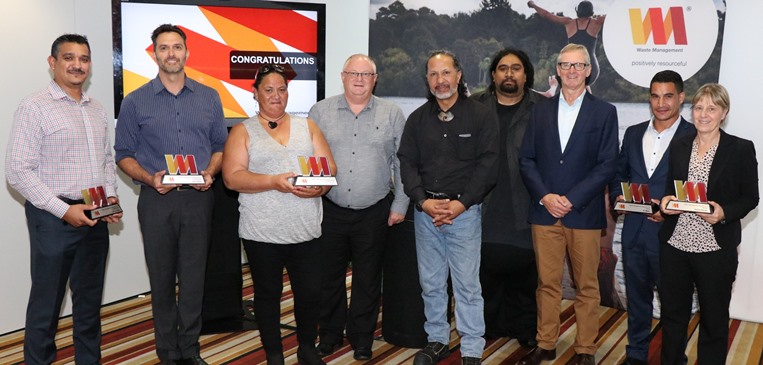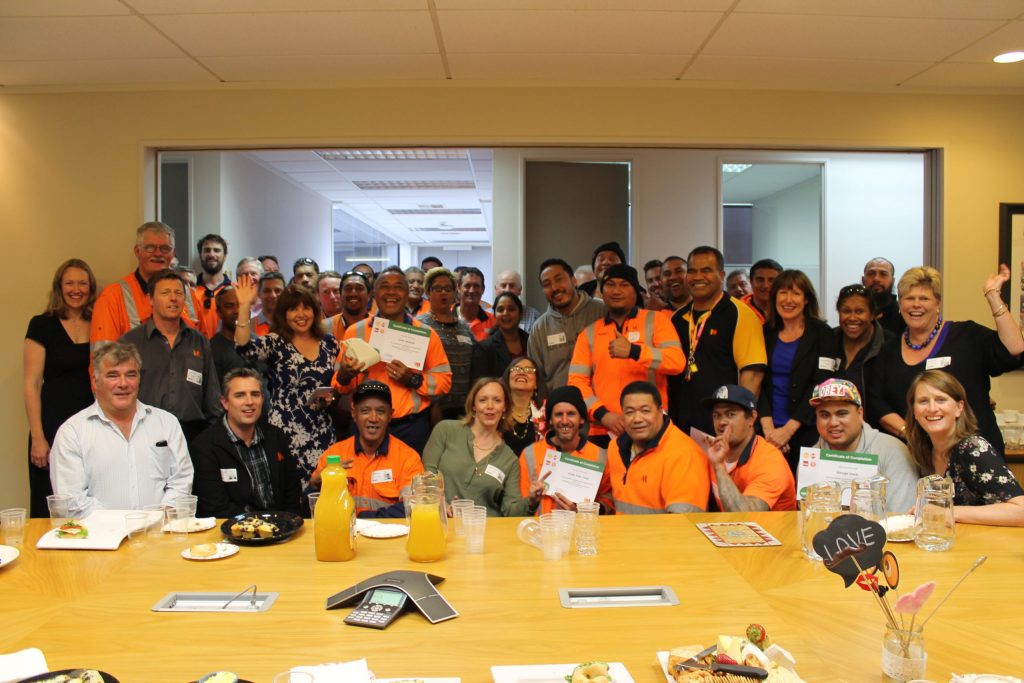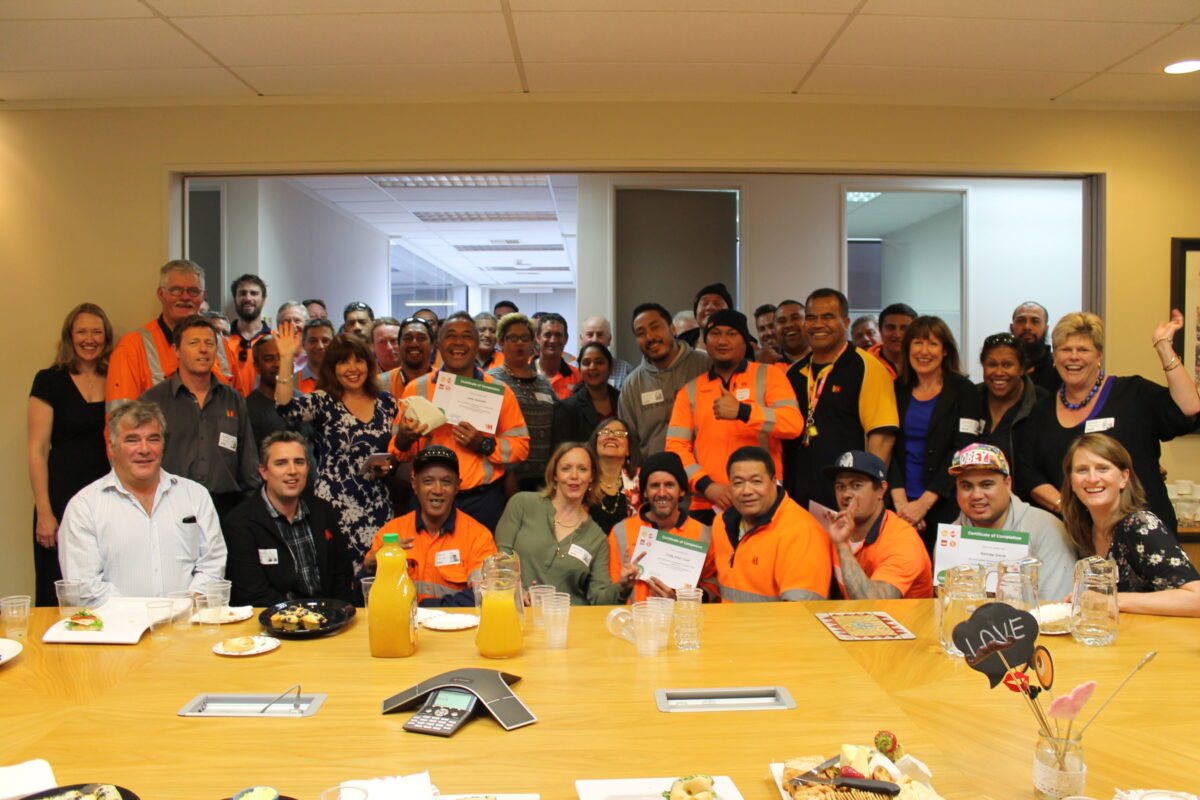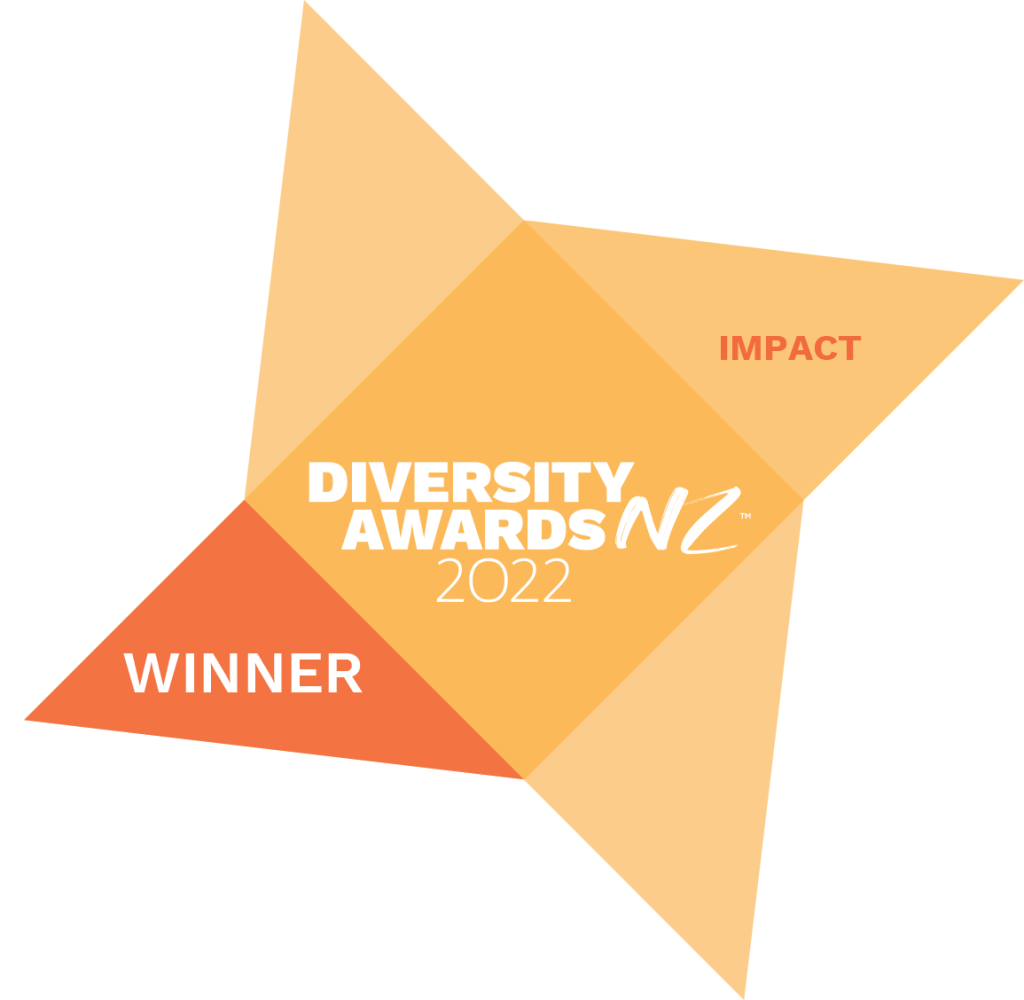
Running a New Zealand-wide waste and environmental services operation, with 1300 staff across 40 sites, is no mean feat. But by practising what they preach, Waste Management NZ is now creating a safer, healthier environment both at work and in the community. The staff training programme Skills First puts staff first and is paying off for individual employees and the overall business. Noticeable changes include a greater understanding of the job, increased confidence, engagement and pride.
A tangible outcome of the programme for three Napier Recycling employees was receiving the National Safety Award for “exceptional work ethic – always going above and beyond what is expected”. Herita Puna, Jonathan Samuels and Ken Wood were recognised for creating an exemplary video for staff induction, outlining and modelling ways to improve health and safety at work.
National Corporate Services and HR Manager, Sharon Scott says a large number of Waste Management employees have no qualifications and English is a second language for many. Most had also had very little training, with the regional branches not as well served as Auckland. “In small communities, they are a big part of the town. We have a social responsibility,” says Sharon. “We are creating people who take their skills home. They read with their children and have constructive conversations at home.”
Skills First Training Programme
With funding from the Tertiary Education Commission, Waste Management was able to contract education provider Upskills to get the Skills First training programme underway across the country. “We started with the willing and built the momentum from there,” says Sharon. “A year ago we didn’t have a 100 per cent uptake, but now we do.” A hundred employees went through the programme in 2016, with a further 70 ready for 2017.
Although the programme benefits can’t yet be measured in “hard numbers”, the payback for the company is already evident. “It helps with retention and shows that we really do care about our team. It’s also about career pathways,” says Sharon. “People get into lower-level jobs and think they have to stay there. The doors are opened for people who want to continue with their training and have the confidence to move on to National Certificates. They are often leaders outside of work – in their churches and sports’ clubs, but they don’t see this transferring over to their work.” For Silverstream Landfill site manager, James Blair, the value of the programme is in having a worker who now shows more confidence, solves problems and speaks up about ways to do things differently.
Projects
Doing things differently was a common theme for other workers too. A group from Technical Services, who work with biological waste, learned about workplace inefficiencies by looking at the time it took for drivers to find products when they came to the depot. “We used to have bins all over the place, boxes all over the place. There was no time to do our jobs. We used to have to walk around the plant and find things for them.” As part of their programme, two workers took the lead in reorganising their workspace. They say improved communications is key. “Before there was a lack of communication. Now everyone is talking and communicating more effectively.”
Another group looked at career progression within Waste Management and chose a pathway that suited their role of fitter/welders. The workers were keen to gain qualifications. As being unqualified formed a barrier to doing the jobs they were asked to do. As one of them said, “I think positively that level 2 engineering will get me in a good frame for the future. Not only for doing my work. If I complete the course, I gain more knowledge and skills, and save time during work and managing in the workshop. Getting a qualification benefits us all, the company gets more skilled workers and we get more money.”
At the Redvale Landfill and Energy Park, a safe vehicle project has been picked up as a training resource. Skills First learners deliver the presentation to their monthly toolbox meeting. An online portal, where learners share stories, helps keep momentum and gets workers using increasingly important digital technology. Digital literacy is an important component of the Skills First programme. As Upskills Director Sarah Balfour says, ultimately all Waste Management staff will access a tablet at work to complete learning and other work tasks. “Staff who already know how to find their way around a tablet have a huge advantage in preparation for this step.”
Outcomes
Empowerment is the overall theme. Sharon says that workers never used to speak up and now they do. They also recognise the importance of health and safety, which is a key priority for the business. “Managing waste is a high-risk sector. It’s important for everyone to understand the risks and to actively report on them. At toolbox meetings, health and safety notices come out. No one said anything previously, but now they are fully engaged and prepared to ask questions.”
Empowerment and confidence transfer into changes in how employees do their job. For the business, this has meant improved retention as workers feel valued. Increased confidence means workers share ideas and problem-solve with managers and supervisors. Naturally, improved communication also impacts on interaction with customers and the community. “Before, I ignored the public when they asked for directions – now I smile and point them in the right way.”
“It changes people’s lives,” says Sharon. “Any large company has a social responsibility to invest in their people by developing and growing their skills”.

Source of the article: http://www.skillshighway.govt.nz/success-stories/a-change-in-the-air-for-waste-management-limited






